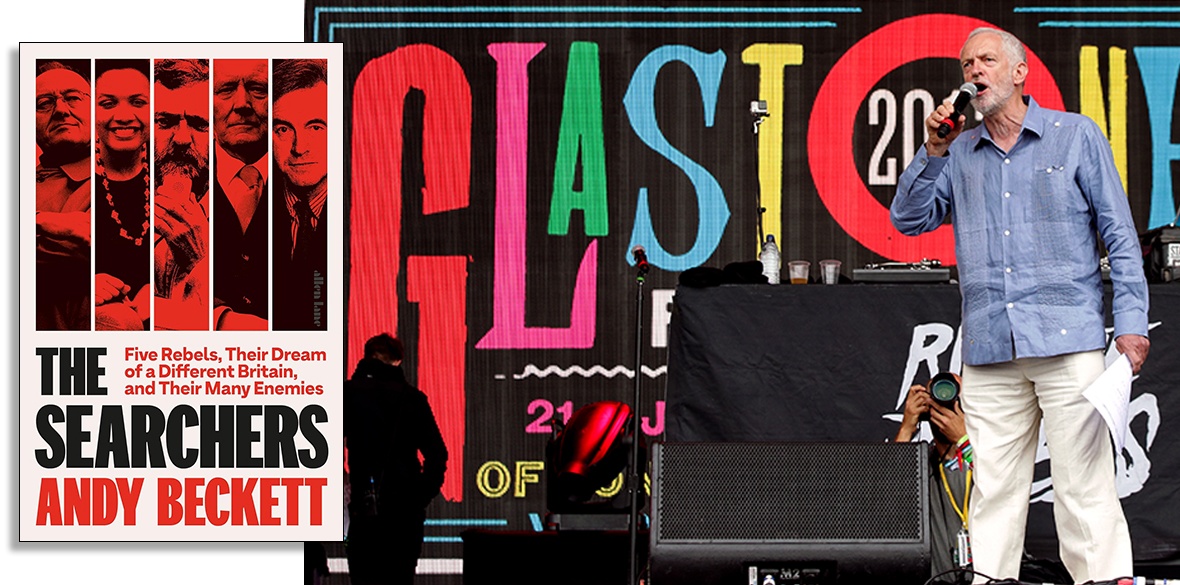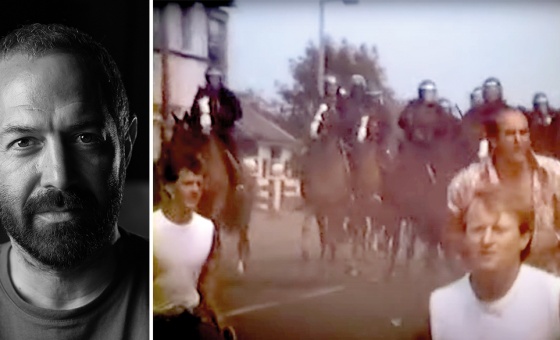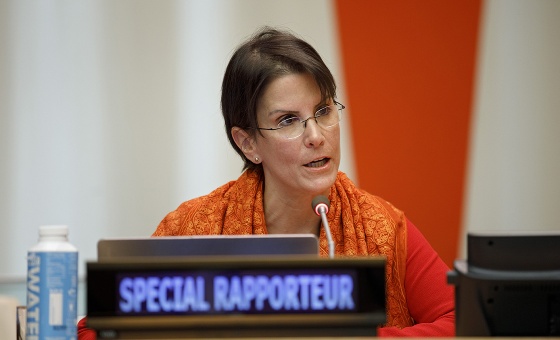This is the last article you can read this month
You can read more article this month
You can read more articles this month
Sorry your limit is up for this month
Reset on:
Please help support the Morning Star by subscribing here
The Searchers
Andy Beckett, Allen Lane, £30
IT is impossible to read this book without a certain sense of pathos. Five years ago, three of its subjects — Jeremy Corbyn, Diane Abbott and John McDonnell — were on the verge of acceding to the highest offices in the land should Labour secure election victory.
Today, one struggles for re-election as an independent against his old party, another has just emerged from a 13-month suspension and brief barring from standing for Labour, and all three are marginalised within party and Parliament.
Guardian writer Andy Beckett ties their stories together with their contemporary Ken Livingstone and their predecessor Tony Benn in a collective quasi-biography that ambitiously aims to tell the story of the Labour left over the last 50 years or so.
Right now, it is a story without a happy ending. But it is Beckett’s thesis that the story can and will have no ending at all — the left is characterised by persistence and endurance, and the forces which created and sustained Bennism and then Corbynism will propel it to the surface once more.
Nevertheless, he records the passing of two generations, and the cresting (and breaking) of two waves of left advance within Labour and, far from the same thing, wider society.
The narrative weaves together the biographies of the five with the story of the left from the years of the Heath government, and the beginning of Benn’s radicalisation, through to the present Starmer reaction.
The five subjects more-or-less choose themselves but presented collectively they highlight a weakness in the book as a portrait of the left, and indeed of the left itself: a heavy London-centric bias.
Four of the five have served exclusively as elected representatives from the metropolis, although McDonnell’s roots are in Liverpool.
Only Benn sought election elsewhere, but even he never lived in his constituencies in Bristol and later Chesterfield, and remained London-based throughout.
Their preoccupations and politics have therefore had a different colouring than if they had represented the “red wall,” for example.
That mattered. I recall sitting round the table at Corbyn’s Brexit strategy meetings and realising that all the key decision-makers had London seats, and indeed four of them represented adjacent north London constituencies which could be traversed on foot in an hour or so, entirely skewing the perspective on a critical issue.
Thus, important things that happened outside London and beyond Parliament, from the Liverpool Council resistance to Thatcher to the miners’ strike to the mass anti-war movement, are treated as more peripheral than they actually were. A broader picture would have Arthur Scargill and George Galloway, and maybe Robin Cook, in it.
Nor was trade unionism central to the five’s development, although Corbyn briefly worked for unions, a point of demarcation from preceding generations. Broadly, they were for the unions but not of them.
Knowing all five of his subjects on a spectrum from very to fairly well, it seems to this reviewer that all of Beckett’s judgments on their personal strengths and weaknesses are pretty spot on. Some might be a little less generous to Livingstone, although he was probably the most successful in terms of actually exercising executive power.
It is an irony, although probably not a coincidence, that of the five the one perhaps most challenged by the exercise of authority, Corbyn, got the nearest to securing the most of it. Beckett deals with the tribulations of his leadership in a balanced way, particularly on the poisoned issue of anti-semitism.
Beckett’s perspective is nuanced and his critical judgements are the more powerful because they come from a place of evident sympathy with what his five subjects were trying to achieve.
Yet their personal characteristics have not been decisive in their fates. That has been settled by the contest between the breadth and depth of the support they could mobilise, on the one hand, and the forces ranged against them on the other.
Beckett thus reminds us of the huge obstacles any politician seeking to transform society in a socialist direction will face. He recalls Thatcher’s sidekick Airey Neave plotting to thwart a Benn premiership by violence if needs be, and the soldiers in uniform using a picture of Corbyn as target practice more recently.
It is notable, too, that all five have struck doggedly to that most unpromising vehicle of social transformation, the Labour Party, unless actually shoved outside it. Whether a similar round-up of five leading left figures in a generation’s time will show the same strength of affiliation is doubtful.
But it will most likely include some Muslim women. Abbott has been repeatedly described as a “trailblazer” of late in the controversies around her personal future. The political future belongs in large measure to those who have followed in that trail.
They would do well to study this volume. It fairly records a past to be learned from but hopefully not, in its frustrations and near-misses, to be repeated.











